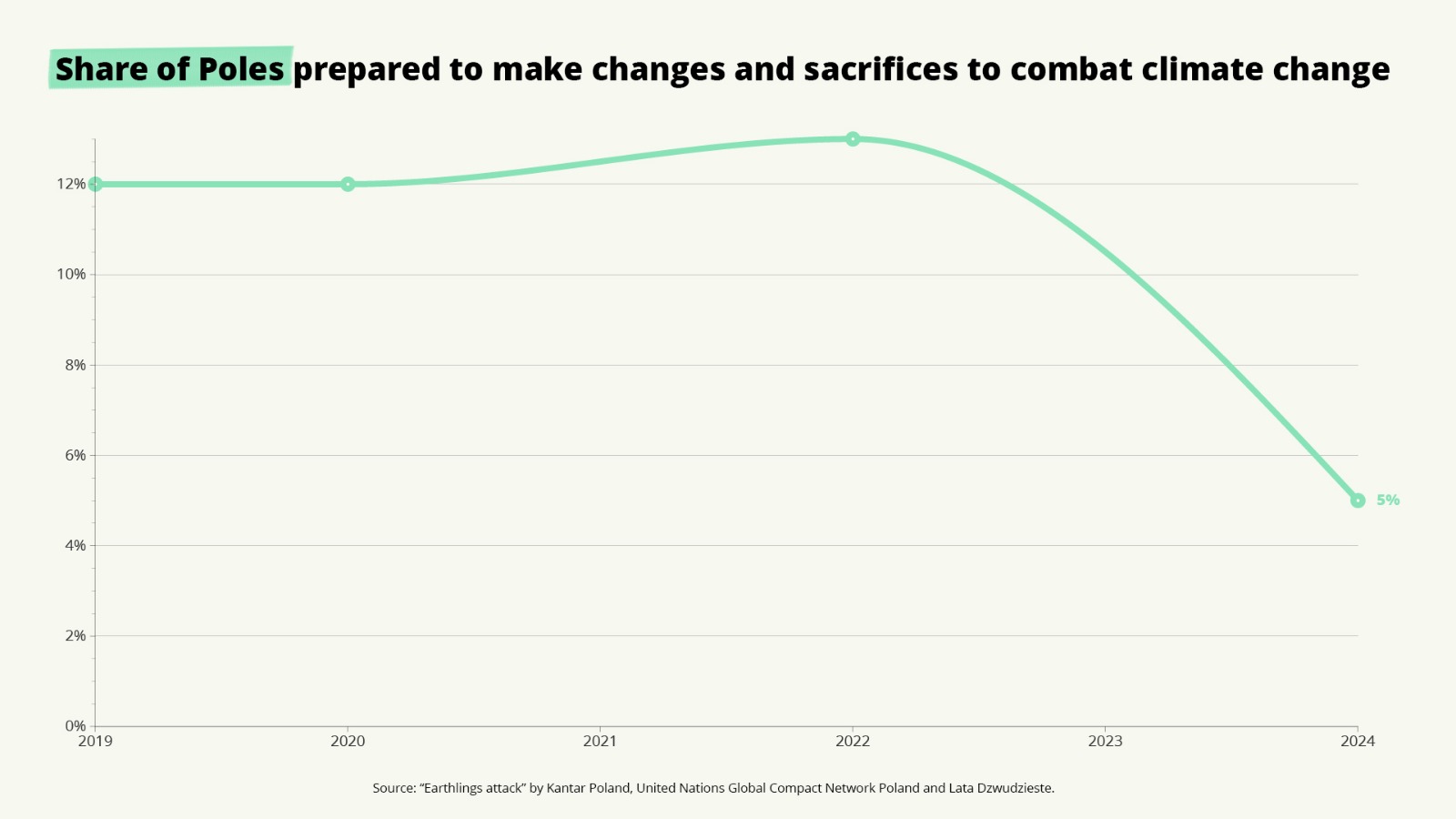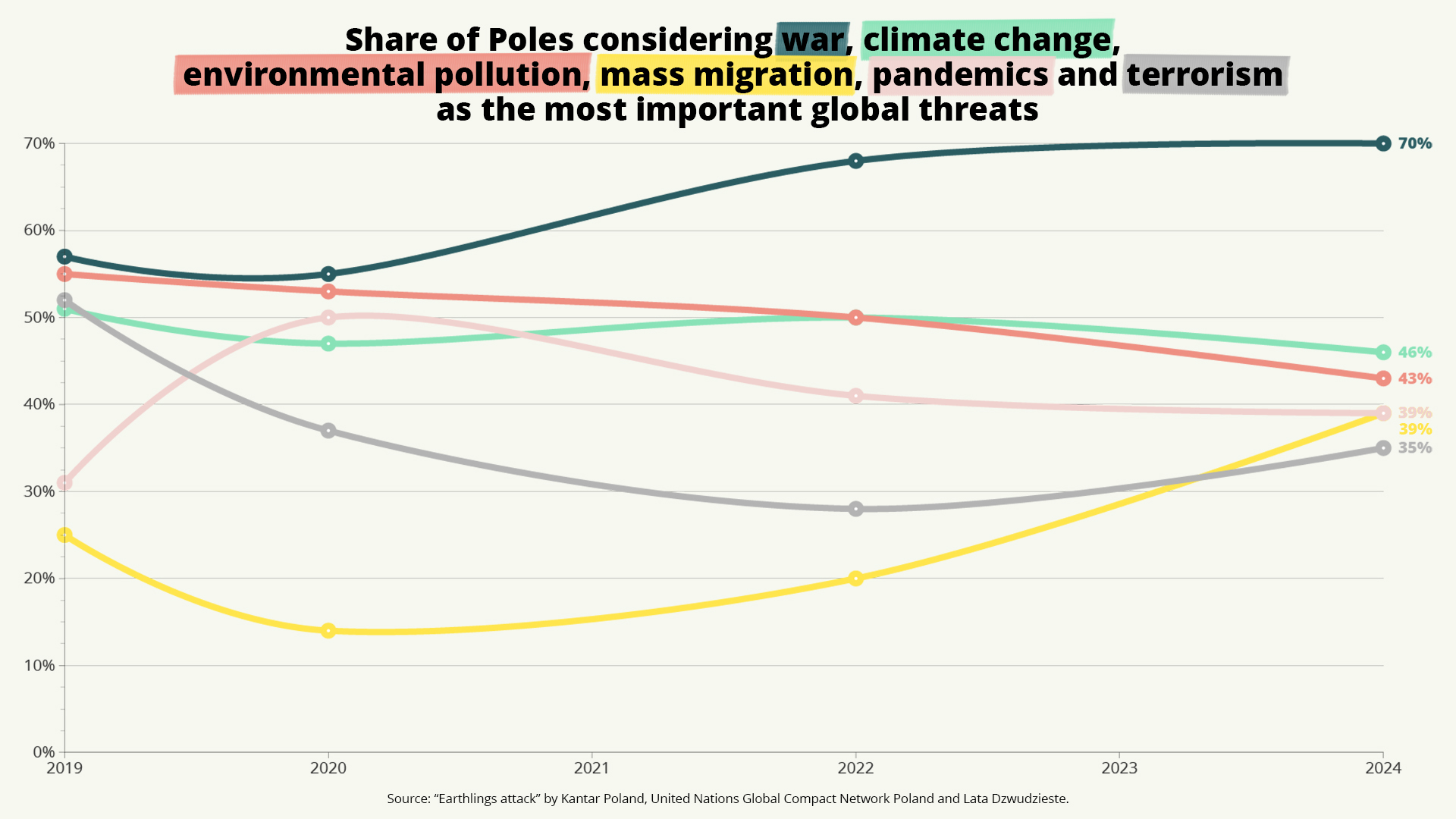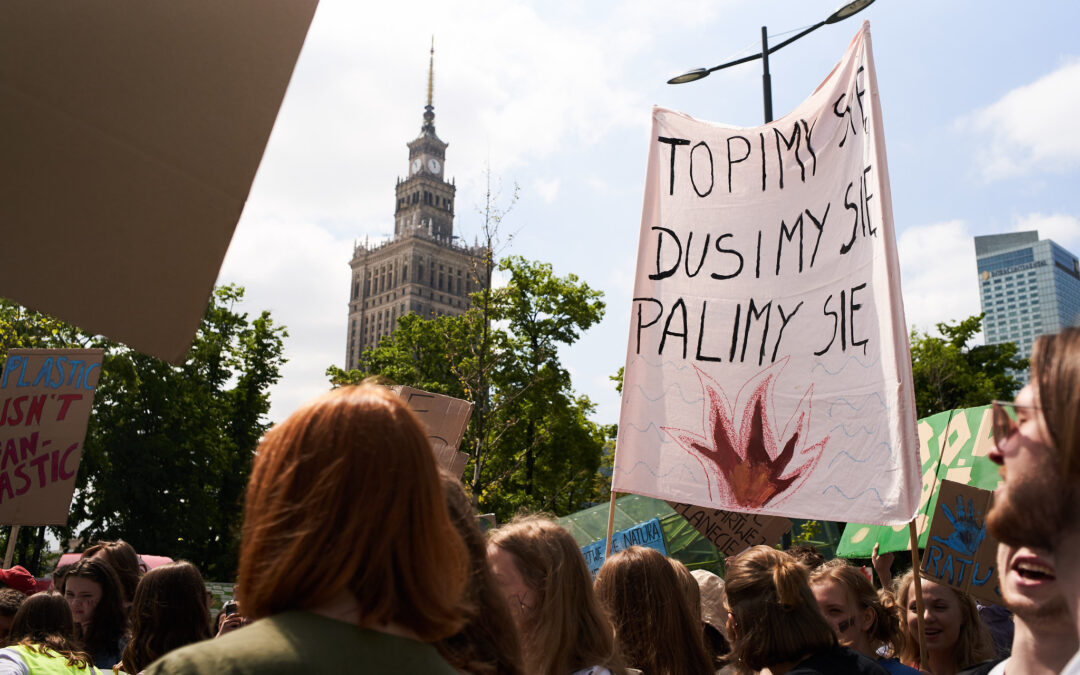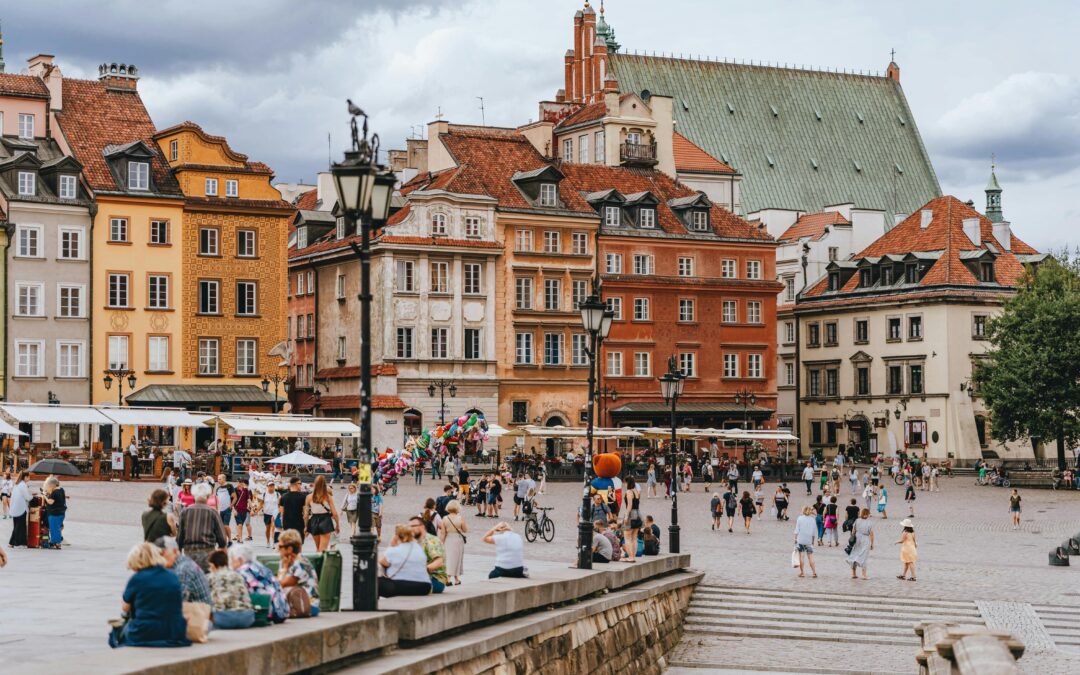Keep our content free from ads and paywalls by making a donation to support our work!

Notes from Poland is run by a small editorial team and is published by an independent, non-profit foundation that is funded through donations from our readers. We cannot do what we do without your support.
Just 5% of people in Poland say they are prepared to make changes and sacrifices in their own lives to combat climate change, down from 13% in 2022, new research shows.
Meanwhile, the share of people considering climate change a major threat has fallen from 50% to 46% over the same period. By contrast, a growing number of Poles regard war and mass migration as threats amid a changing geopolitical climate.
The findings come from the latest version of a report, titled “Earthlings attack” (Ziemianie atakują), prepared in collaboration between the Polish chapter of the United Nations Global Compact Network, pollster Kantar Poland, and the green transformation agency Lata Dwudzieste.

It showed that, whereas in 2022 53% of Poles believed that certain restrictions by the government are necessary to mitigate climate change, now only 46% do. Fifty-two percent now believe that human actions threaten the environment, compared to 63% when the study was first carried out in 2019.
Meanwhile, in the period 2019-2024 – which was marked by Russia’s invasion of Ukraine in 2022 and a migration and security crisis on Poland’s border with Belarus that began in 2021 – Poles have become increasingly concerned with threats such as war, mass migration, online crime, pandemics and terrorism, finds the survey.
The proportion of people who cite war as one of the biggest threats now stands at 70%, up from 68% in 2022 and 57% in 2019. Meanwhile, 39% now say that mass migration is one of the biggest threats, up from 20% in 2022 and 14% in 2020.
Poland has also seen soaring inflation over the last two years, and the survey found that the proportion of Poles who now say they “can’t afford” to do more for the environment has risen to 21% from 16% in 2019.

The authors of the report note that a decline in the proportion of people willing to make personal sacrifices to combat climate change was “particularly painfully evident among the youngest respondents”.
“This may be due to too much negative information that people (especially young people) cannot mentally ‘handle’,” they write. “From a psychological point of view, this excess leads either to indifference or to ‘shutting down’ and an increase in depressive symptoms.”
According to Mateusz Galica, who led work on the report, its findings show that we need to “stop scaring people and lecturing them, hoping to make them feel responsible for the planet”.
Renewables generated a record 26% of Poland’s electricity in 2023, up from 19% the previous year.
However, coal continued to produce most of the country’s power, accounting for almost two thirds of the energy mix https://t.co/JQqfMkOK4I
— Notes from Poland 🇵🇱 (@notesfrompoland) January 3, 2024
“Instead, we need to start having honest conversations with people about what’s going on, what we’re facing and how we can deal with it,” he told the Rzeczpospolita daily.
In 2022, Poland was rated as the European Union’s least green country in an EU-funded study. Last year, the country generated almost two thirds of its electricity from coal, by far the highest proportion in Europe.
Poland also has some of the continent’s worst air pollution, which causes tens of thousands of premature deaths annually. According to a new World Bank report, Poland was the only country in Europe to record an increase in pollution-related deaths between 2015 and 2020.
Poland "is the only country in Europe where pollution-related deaths increased between 2015 and 2020" pic.twitter.com/HR6wN2eQWp
— Daniel Tilles (@danieltilles1) November 8, 2024

Notes from Poland is run by a small editorial team and published by an independent, non-profit foundation that is funded through donations from our readers. We cannot do what we do without your support.
Main image credit: Greenpeace Polska / flickr.com (under CC BY-ND 2.0)

Alicja Ptak is deputy editor-in-chief of Notes from Poland and a multimedia journalist. She has written for Clean Energy Wire and The Times, and she hosts her own podcast, The Warsaw Wire, on Poland’s economy and energy sector. She previously worked for Reuters.



















